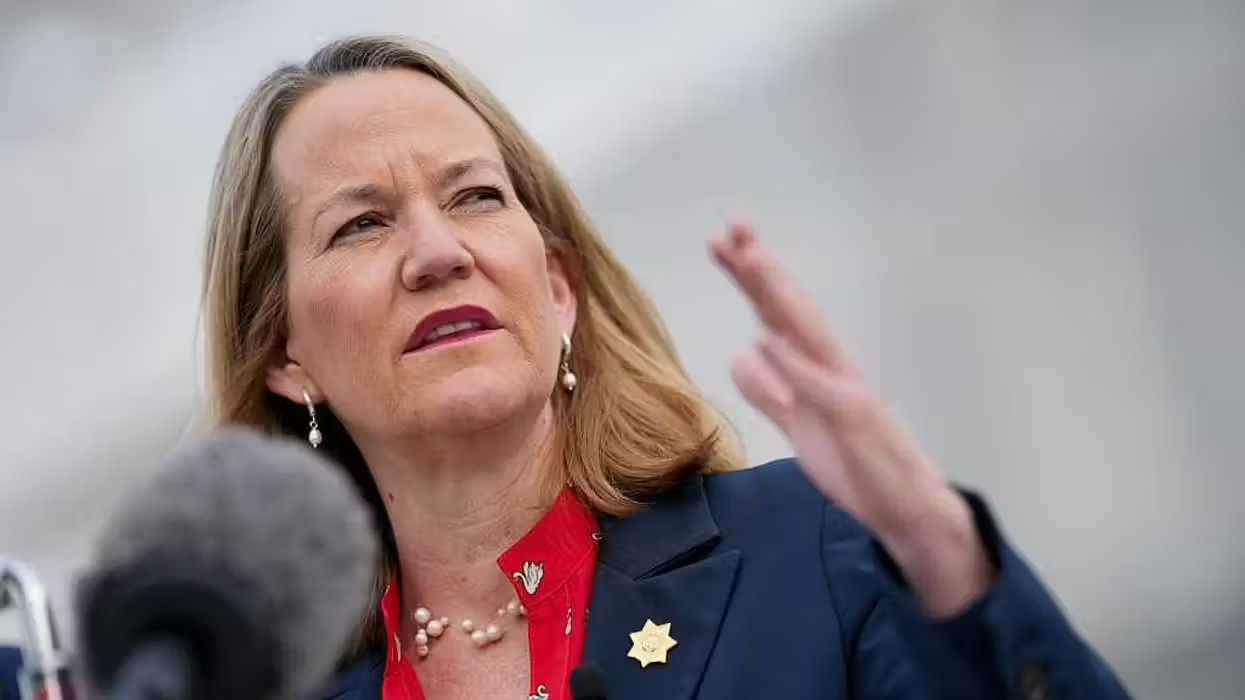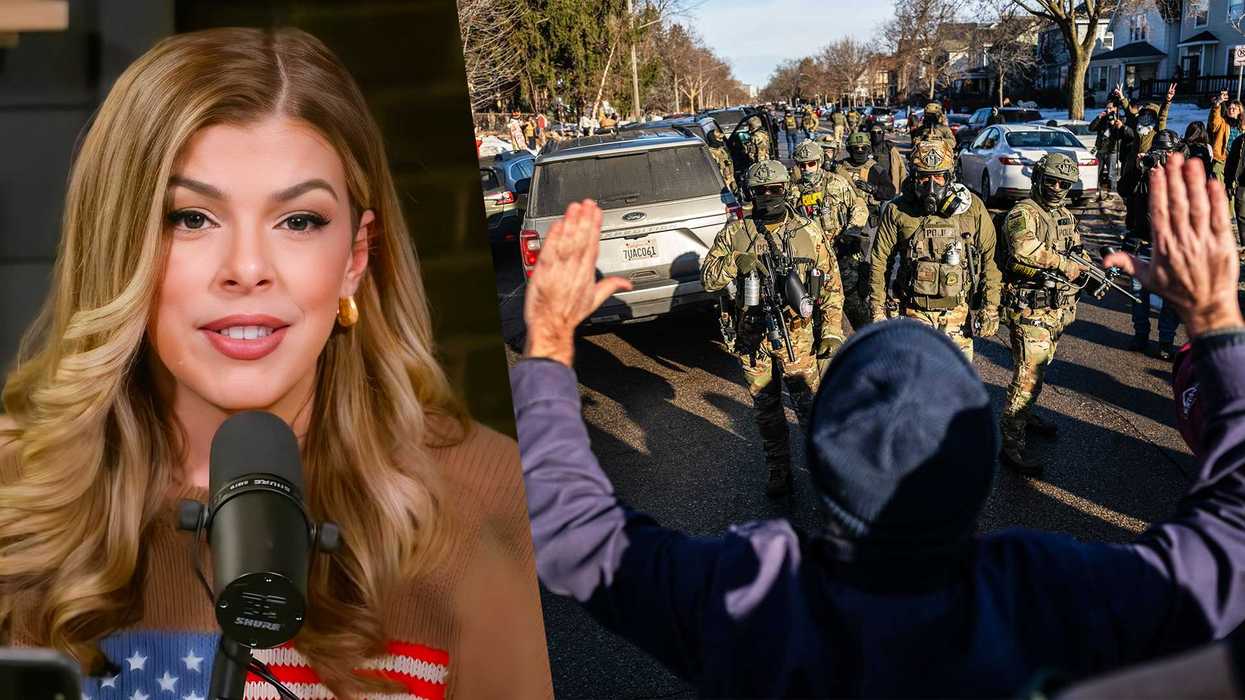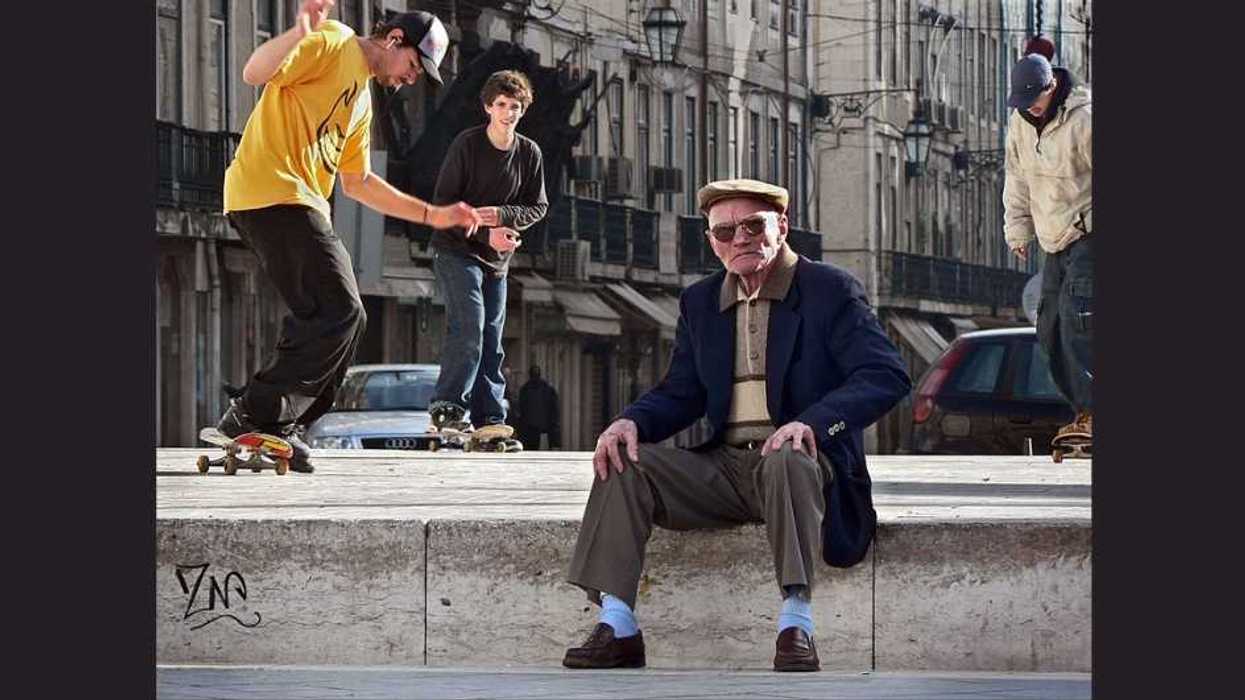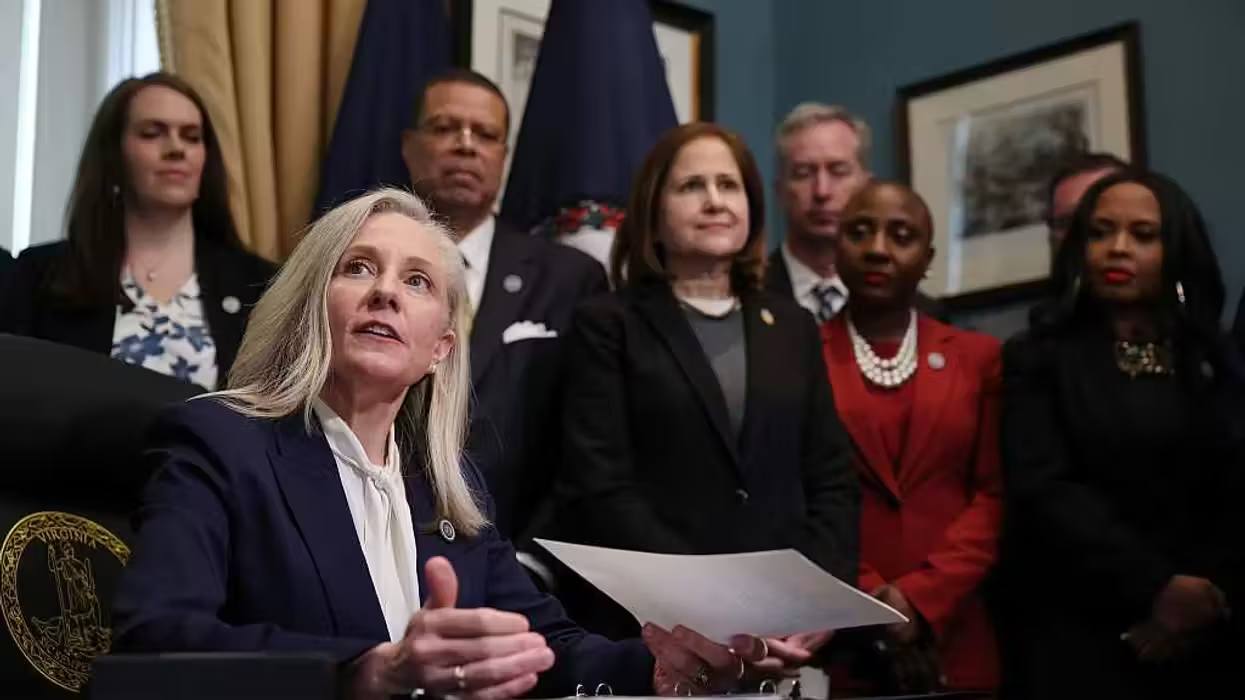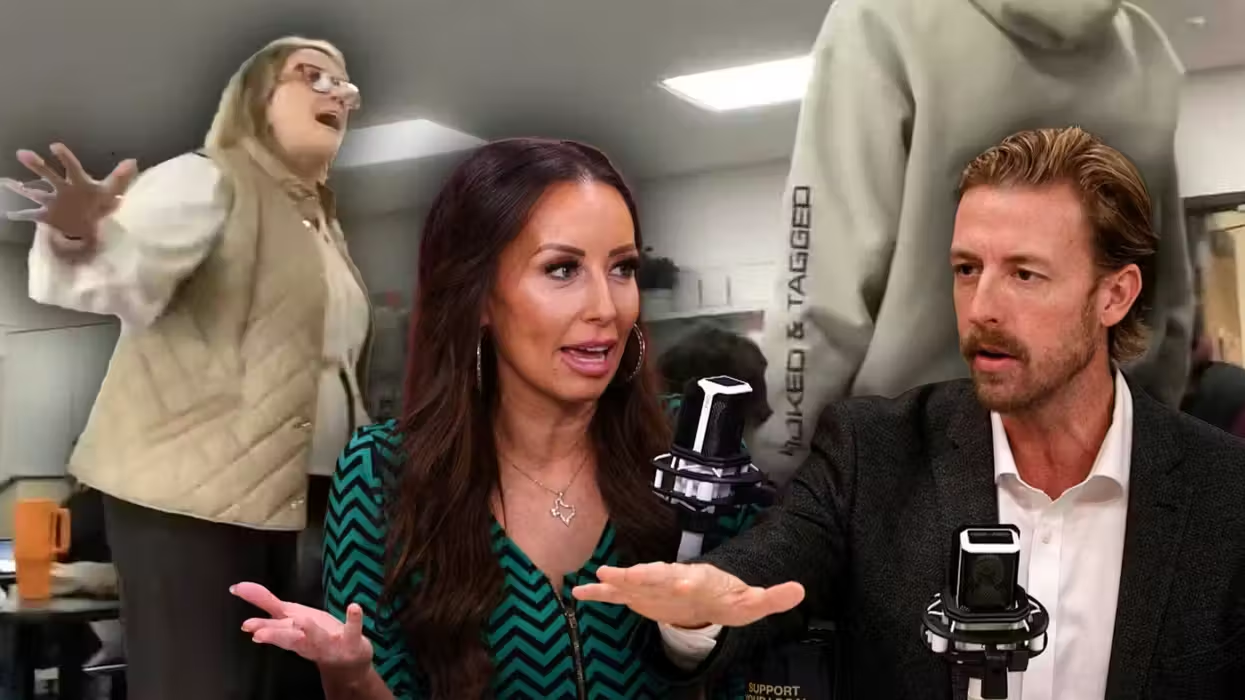
© 2026 Blaze Media LLC. All rights reserved.
But will liberals spin a strike-down as a positive?
As the constitutionality of Obama's Affordable Care Act was examined for the third and final day in a row by the Supreme Court, a laser focus has been directed at its lynchpin “individual mandate,” requiring individuals to carry health insurance by 2014 or suffer a penalty (some consider the penalty a tax). This mandate has been the focus of the Court's hearings. Another major consideration in the case is whether justices, if they do strike down the mandate, will in turn throw out the entire health care law.
Regardless of which side of the political fence one sits, one thing is clear: This is a historic case with monumental consequences if the mandate is allowed to stand and precedent is set.
On Wednesday, Glenn Beck dedicated significant time, both on radio and during his GBTV evening broadcast, to discussing this crucial matter facing the country.
Beck talked about how Obamacare has gone 12-rounds in the Supreme Court:
Meanwhile, I also caught up with Virginia Attorney General Ken Cuccinelli, one of the original opponents of Obamacare leading the effort to overturn the mandate, for the latest on the hearings. Cuccinelli noted that the proceedings exceeded his expectations in terms of a possible outright repeal.
Based on the last three days of arguments, Beck concurred that "it's not looking so good for Obamacare." 26 states are challenging the law and say if the Supreme Court finds the individual mandate unconstitutional, so is the rest of the law.
Background:
The administration's top lawyer, Donald Verilli faced a robust round of questioning, even by justices seen as sympathetic to the administration, Justice Ruth Bader Ginsburg and Justice Sonia Sotomayor. Yet even though those on the liberal side of the court appeared discerning to say the least, most believe the fate of the controversial mandate lies with Chief Justice John Roberts Jr. and the potential swing vote of Justice Anthony Kennedy.
Verilli sounds nervous:
After Tuesday's session, observers said a 5-4 decision along partisan lines striking down the mandate was likely. Critics have maintained the argument that if the government can require citizens to purchase medical insurance, it likewise can require Americans to purchase other "beneficial" items down the road -- be it broccoli or a gym membership.
Justice Scalia dissects this point below: “Could you define the market that everyone has to buy food, therefore everyone has to buy broccoli?” The response to all of these questions seems to be – “Of course that very similar situation is ridiculous, but Obamacare slightly differs, so it’s okay.”
Justice Kennedy turned to that very point early into Tuesday’s session, asking Solicitor General Donald Verrilli Jr. if the government could require citizens to purchase certain food.
“Here the government is saying the federal government has a duty to tell citizens it must act,” Kennedy said. He added that such a move changes the citizen-government relationship “in a fundamental way.”
“It feels good to have some adults in the room holding people accountable for their logic,” Glenn said.
While court reporting indicates most of the justices appear opposed to throwing out Obamacare in its entirety, their views on how much of the Affordable Care Act to retain remains unclear.
According to Cuccinelli, Chief Justice Roberts, for example, noted poignantly that states had been asking for money for years, and that this money had strings attached to it. He said the states gave up a portion of their "independent sovereignty" by accepting the money and the fact that those strings are now being pulled should not surprise them. Cuccinelli said it was a "finger wag" to states: If you are sovereign, then act like it.
As for Justices Ginsburg and Sotomayor, who were said to have asked some pretty tough questions during the first two days of hearings, I asked Cuccinelli if they were exercising the same level of scrutiny today, or if they were showing signs they might acquiesce. He noted that there wasn't a great deal of change since Monday and Tuesday but that if there were a vote in favor of the mandate, it would likely be from Sotomayor.
Meanwhile Adding levity to the day, Justice Scalia reportedly invoked the 8th amendment on "cruel and unusual punishment," joking that it would pertain directly to reviewing the entire bill.
By and large Americans oppose the mandate based on constitutionality:
72 percent of Americans say the Obamacare individual mandate requiring citizens to purchase insurance is unconstitutional -- and 54 percent of those who do want the mandate also cede it is unconstitutional.
"Seems pretty obvious to me," Beck said.
During his evening program beck also interviewed John Goodman with the national Center for Policy Analysis to provide insight on the proceedings. Among the topics discussed were the potential repercussions for insurance companies who may have seen dollar signs if young, able-bodied people were required to purchase insurance:
Another topic discussed during Beck's evening program was the single payer health care plan Obama said he wanted to see back in 2003. "If you pull away the mandate," Beck said, the single payer plan is what the left will likely go after next.
Regarding the commerce clause, Beck asked if this was the beginning of its undoing.
"If overturned, you repeal the entire federal government" his guest said.
But do the numbers really matter?
"Because I'll tell you how this will turn out. The main stream media is already saying this could be good for Obama!"
"Of course it is," Beck quipped. "Because it is the evil right that has stopped the progress this country is making."
And the seeds are currently being planted. Beck alerted viewers that the administration is already setting up the Supreme Court to be painted as "the bad guys."
A former acting solicitor general for the Obama White House said:
"If the Supreme Court struck this down, I think that it wouldn't just be about health care. It would be the Supreme Court saying: 'Look, we've got the power to really take decisions, move them off of the table of the American people, even in a democracy...What I think is not appropriate is to take that policy debate and put it in front of the Supreme Court of the United States. If they don't like the law, there's an easy vote and that's in November."
But this is how our government works, Beck said. The Supreme Court was founded in 1789 and it's has been effective for the last 223 years.
Even a strike-down will be spun as a "positive" by Democrats:
And that very well could become the case, if we take longtime Democratic strategist James Carville at his word.
The general opinion has been roughly the same across the aisle, as both Democrats and Republicans' believe the mandate will likely be stricken down. Yet before the hearings have even concluded, Carville may have given away his party's hand in the wake of a potential Supreme Court defeat.
According to Carville, a strike-down is "the best" possible outcome for Democrats as the burden of health care would then fall to Republicans solely. He also inferred that the Democratic narrative moving forward will be that the Supreme Court overturned an election, bringing the country George W. Bush, and now the same court has stricken down health care.
Below are Carville's remarks for clarity:
“They [SOTUS] overturned an election. And just as a professional Democrat, there’s nothing better for me than they overturn this thing 5-4. And then the Republican Party will own this health care system for the foreseeable future. … Go see Scalia when you want health care.”
Yet despite how the left may spin a potential strike-down, Beck said he found it ironic how the left champions the Supreme Court when talking about cases like Roe V. Wade.
"These nine people who sit on the highest court in the land will make the decision."
"I love how they [left] love the Supreme Court on Roe V. Wade but when it doesn't go their way they kick and scream and pack up their toys and they go home."
Beck said that "whether you like it or not" these justices are a "living representation" of the statues outside the very building from which they deliberate, and administer justice.
They are the "guardians" and "authority" of the law.
Cuccinelli’s gut reaction to Carville was that he "loved" Carville’s phrase, “Professional Democrat,” and that he is "prepared for that policy contest." He added that people tend to react "more out of consternation than out of contentment" and that this would likely be the case among Democrats if the mandate is struck down.
Is Phase II of Political System X apparent in these proceedings?
Beck said that the vast majority of the country thinks Obamacare is unconstitutional. But the progressives are "fanning the flames" to set the political world on fire, and according to Beck, this falls in line with Phase II of Political System X.
You may recall from previous posts on The Blaze, that one of the key components of Phase II is realizing a "fundamental transformation."
Another key component of Phase II is "creating chaos" and causing people to rise up. Whether the mandate is struck down or upheld, "chaos" will certainly result from at least one side of the aisle.
If struck down, a "negative stereotype" (another component of Phase II) will be enforced stating that conservatives "don't want the poor to have health insurance." Conservatives will be painted the villains this scenario.
At the end of the day, Beck reminded that this mandate also reinforces "reckless habits" as it suggests Americans are incapable of taking good enough care of themselves. It also hints that citizens can't financially sustain themselves so the government must do it for them.
Beck also posited that the president has "set the Supreme Court up from the beginning," since "teachers unions have failed" people don't know checks and balances.
"So who will protect the Supreme Court?"
Cuccinelli provides greater insight:
While Cuccinelli is not a direct participant in the litigation -- given that the Court has deferred consideration of Virginia's challenge until after it hears Florida's challenge on behalf of more than two dozen states -- the state Attorney General has participated as an observer, providing daily commentary and analysis of the proceedings.
After Tuesday's hearings, Cuccinelli noted the Justices grappled with the tax issue in particular. Ginsburg seemed to suggest she does not think of the penalty as a tax.
But the main focus still remains the mandate's constitutionality. In a previous interview, Cuccinelli noted the Government has never before mandated its citizens purchase insurance, noting that 10 years before the revolutionary war, the British did not even compel Americans to "buy British products."
Cuccinelli has noted that those arguing on the side of limited government have been "very consistent" throughout the case, yet the Fed has in fact shifted its argument considerably since the proceedings first started. "We quoted their briefs against them three different times so far," he said in an interview.
Severability:
The issue of severability has become crucial among conservatives and the main question Americans want to know is if the justices will throw out the whole law, or just the mandate.
Cucinelli told me that after Wednesday's proceedings, he saw "more openness to a complete repeal" and could, based on his observations, see a five-vote strike.
This case is unprecedented and the Supreme Court has made historical moves before. Coservatives are treading cautiously in the event this could be one of those times.
If passed, Cuccinelli noted in a previous interview that the move would "end federalism" as we know it. He added, however, that Justice Kennedy has been a "consistent protector of structural federalism" -- which is to separate state from federal power.
After showing what the attorney general described as a "deep, philosophical understanding" of the issue at play -- structural federalism -- Kennedy challenged arguments on severability. The justice argued that if carved, there would be a myriad unintended consequences for insurance companies that were never even considered.
In a move Cuccinelli said was remarkable, Kennedy appeared to take a clear position by saying he "rejected" the severability premise. Cuccinelli added that he is not used to seeing Kennedy reveal his hand like this and that by saying he "rejected" the premiss, naturally leads one to believe he would throw out the entire law. "Reject" is a strong word, the attorney general said.
If the law is upheld, a clear path forward for conservative is unclear. The required 60 Senate votes needed to secure an appeal would be a difficult hurdle to overcome to say the least.
In terms of Republicans, Cuccinelli said he faulted the GOP for not doing enough on health care during their six years of control. He noted, however, that there are Republican lawmakers, including himself, who are poised to offer real solutions. Regarding the primaries, he said Romney can at least say, "look I cared enough about it [health care] to have done something," even when Republicans in Washington did nothing.
Time will tell:
There will be much speculating as the justices deliberate but a betting person would wager the individual mandate will be striken down. The burning question remains: Will the baby be thrown out with the bathwater?
Want to leave a tip?
We answer to you. Help keep our content free of advertisers and big tech censorship by leaving a tip today.
Want to join the conversation?
Already a subscriber?
more stories
Sign up for the Blaze newsletter
By signing up, you agree to our Privacy Policy and Terms of Use, and agree to receive content that may sometimes include advertisements. You may opt out at any time.
Related Content
© 2026 Blaze Media LLC. All rights reserved.
Get the stories that matter most delivered directly to your inbox.
By signing up, you agree to our Privacy Policy and Terms of Use, and agree to receive content that may sometimes include advertisements. You may opt out at any time.

